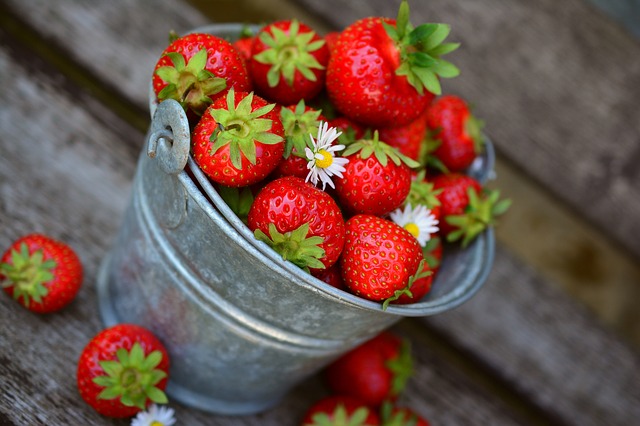
There are a great deal of benefits to horticulture, and it’s a very enjoyable hobby. Whether veggies or flowers are your passion, the very act of creating a garden is immensely rewarding. Learn how much water your vegetables and flowers need and be sure you plant them in the right kind of soil. Follow some of the advice contained in this article for further ideas of things you should know.
Gradually acclimate plants to temperature changes and conditions, if you want to avoid shocking them. Put them out in the sun for approximately one to two hours on the very first day. After a week, leave your plants outside for twice as long. By the week’s end, your plants should then be ready for the big move!
Use both annuals and biennials to add a splash of color to your flower beds. Biennials and annuals that grow quickly can add color to a flower bed, plus they permit you to modify the way the flower bed looks each season and each year. You can fill any spaces between shrubs and perennials when they are in the sun. There are many flowers you can plant in these gaps. Try marigolds, petunias or sunflowers for a brighter garden.
If your plants have a powdery mildew, don’t use expensive chemicals on them. All you need to do is mix baking soda with a tiny bit of liquid soap in with some water. Once every week, you should spray the mixture on your plants; the mildew will disappear shortly thereafter. Baking soda treats the mildew effectively and gently and it won’t damage your plants.
To get the best results, you must use the right soil. Your soil may not be correct, but it depends on what sorts of plants you want to grow. You can make an artificial area that uses a single kind of soil.
Plants need CO2 grow well. A higher level of CO2 will help plants grow better. A greenhouse will provide the best method of providing enough CO2 for your plants. To maximize your plants’ growth, make sure to monitor these levels to ensure they’re adequate.
If you are going to be doing some horticulture, watch out for stink bugs, especially in the fall! Stinkbugs are most prevalent on tomatoes, beans and peppers. If left uncontrolled, they can cause substantial damage in your garden, so make plans for how to protect your plants from these pests.
You can use boiling water to get rid of weeds naturally. Boiling water is an excellent, organic substance for use against weeds. Although this method is organic, it does pose a danger to your plants. Boiling water will actually hurt the roots, and it will prevent the weeds from growing.
In order to rid your garden of pests, take advantage of plant materials and other organic matter. Forming a border around your vegetable garden with marigolds or onions are ideal for repelling slugs. Using wood ash as mulch around the base of trees and shrub seedlings will also help keep away insect pests. By utilizing these methods, you will not have to apply chemical pesticides on your vegetation.
Start your peas in a protected indoors environment rather than outside. Seeds will always germinate much better when you first plant them indoors initially. Your seedlings will be stronger, and this will mean they can withstand diseases and bug attacks. Take the seedlings outdoors once they look strong enough.
Pest control is one of the hardest things about growing a vegetable garden. Do not spray harsh chemicals on the vegetables you are going to eat. Remain vigilant to control your garden pests. If you catch pests right away, the easiest way to eradicate them is to pick them off plants by hand.
Pick your vegetables when the temperature is moderate to avoid bruising them. You can also protect both your vegetables and the plant they grow on by cutting them off instead of twisting them off.
Get your kids to help you grow your organic garden. An organic garden will help your child learn more about plants and insects, and it’s a wonderful bonding time while growing healthy produce.
For some plants, pine needles makes an ideal mulch. Some garden plants have a higher acidity, and prefer a more acidic soil. If you have these plants in your garden, keep them healthy by using pine needles as mulch. Spread the needles over the beds in a layer that is approximately 2-inches deep. Over time, the needles will begin to decay, supplying the soil with acid as they do.
Spacing is essential when planting an organic garden. Do not underestimate the space that plants need to develop their root systems. Your plants will need the space not only because of their physical size, but also because the space will provide air circulation for the garden. It is, therefore, important for you to plan accordingly and allow for enough room between your seed rows.
Keep the soil healthy by adding mulch. Mulch will protect the soil it covers. This protective effect is especially important during the summer, as it protects the roots from the effects of the heat. The soil will also stay moist longer because it reduces evaporation. It can also help alleviate any weed issues.
Horticulture is not only a great hobby, but also a way to feel at peace with the earth. Organic gardening will accomplish that feeling even more so. Not only does organic horticulture provide you with quality food, but also you learn all of the plant’s cycles.
As has been noted above, there are many rewards inherent in gardening. Whether you enjoy a vegetable or flower garden, the rewards are beneficial. By employing the ideas in the preceding paragraphs, you can elevate the rewards of your gardening to a whole new dimension.